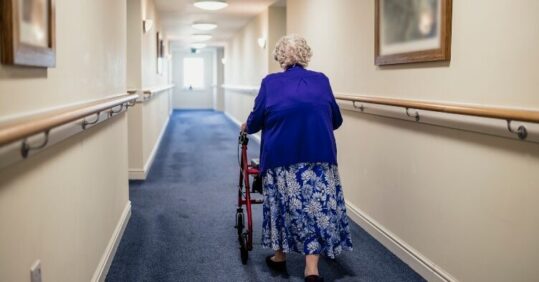Care home data network builds on pandemic findings to reduce infections

A new programme known as the VIVALDI social care project has been commissioned by the UK Health Security Agency (UKHSA) to reduce the spread of infections in care homes.
The pilot scheme is co-led by researchers at University College London (UCL) in collaboration with The Outstanding Society, Care England, and NHS England and will work with over 500 care homes in England. The researchers will monitor infections such as Covid-19, flu, norovirus, and urinary tract infections to help reduce the impact of outbreaks in care homes for older adults and improve residents’ quality of life.
Related Article: Advice on Guillain-Barré risk for adult RSV vaccine updated by MHRA
The VIVALDI social care project follows the initial VIVALDI study, which began in May 2020 and was undertaken during the pandemic to understand why some care homes experienced Covid-19 infection outbreaks and to examine the impact of the vaccination. The initial study helped inform decisions to reduce the spread of the virus, including the movement of staff between care homes. It also highlighted the need for sick pay for care home workers.
Principal investigator Professor Laura Shallcross from UCL, who also led the earlier VIVALDI study, said: ‘The VIVALDI social care project is a fantastic opportunity for researchers, residents, relatives, staff, and care providers to work together to tackle the problem of infections and outbreaks in care homes. By learning lessons from the Covid-19 pandemic, we aim to find new, better ways to protect residents that do not impact negatively on their quality of life.’
The new pilot study will analyse anonymised data to help reduce the impact of a broader range of infections and to mitigate against outbreaks. Using a data platform co-designed with people who live and work in care homes, the researchers can link the new care home data with existing datasets already collected by the NHS, including hospital admissions, mortality data, immunisations, laboratory test results, and prescriptions. The resulting data will provide an integrated analysis of a care home resident’s health and healthcare interactions.
The initial VIVALDI study helped address the gaps in the care home data during the pandemic, which left residents vulnerable to infection outbreaks, particularly at the start of this period. The analysis linked data from over 300 care homes in England, including vaccination records, hospital visits, and death records. Blood samples were also taken to study infection rates and immunity, and care home managers completed surveys.
Related Article: Lower stroke survival odds faced by people in poorer areas
Professor Steven Riley, director general of data, analytics and surveillance at the UK Health Security Agency, said: ‘The UKHSA’s collaboration with UCL on the VIVALDI study helped us understand the impact Covid-19 had in care homes and fed directly into important policy-making decisions, helping to protect those living and working in adult social care settings during the pandemic.’
He added: ‘We are delighted to be able to continue this work and provide valuable data that will contribute to our mission to prepare for, prevent and respond to health threats, protect livelihoods and, most importantly, save lives.’
Related Article: Action needed to tackle untreated hearing loss in care homes
The researchers hope that data collection will play a ‘pivotal role in driving positive transformation within the sector’ and enhance the well-being of individuals residing or working in care homes for older people throughout England.

See how our symptom tool can help you make better sense of patient presentations
Click here to search a symptom




